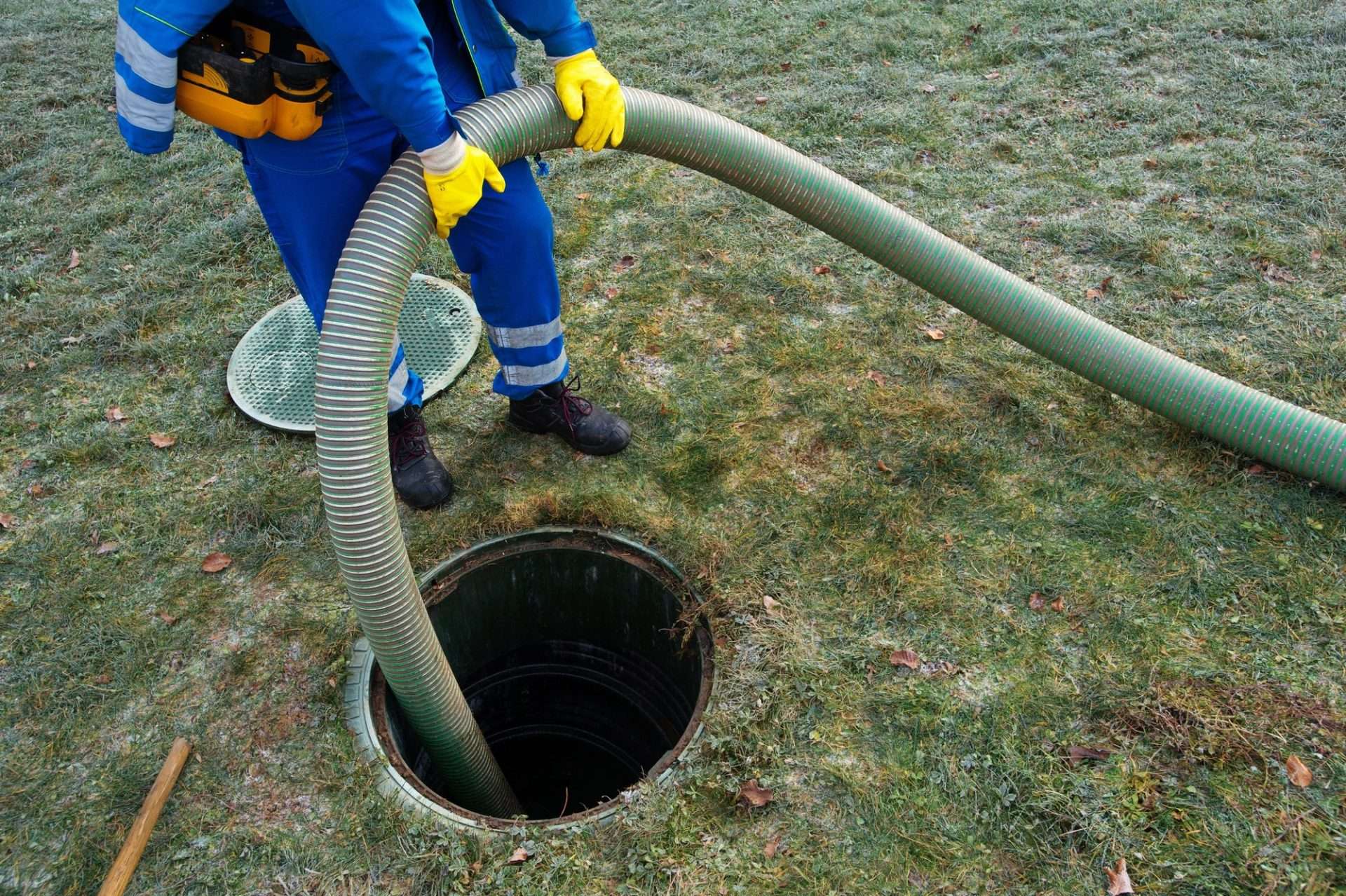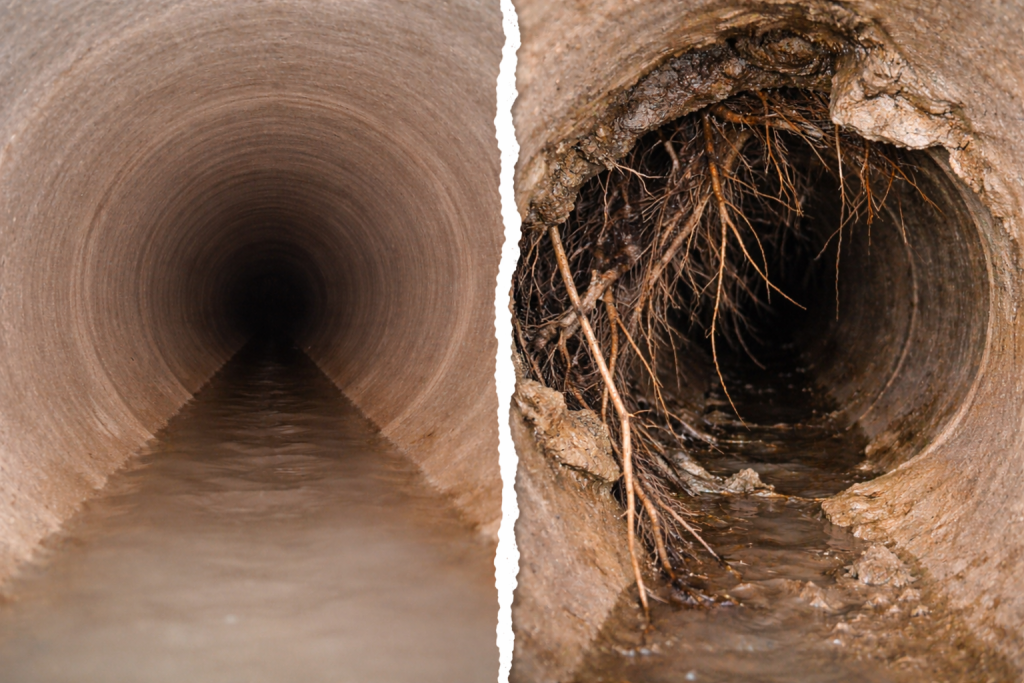When it comes to maintaining your property, septic tank servicing is often overlooked but incredibly crucial. Your septic system plays a vital role in managing household waste, and neglecting it can lead to costly repairs and potential health hazards. Regular septic tank maintenance not only ensures the smooth operation of your plumbing system but also helps to preserve your property value and protect the environment.
In this article, we’ll explore why septic tank servicing is so important and what it entails. You’ll learn about the key components of septic tank maintenance, signs that indicate your system needs attention, and the environmental and health benefits of proper upkeep. Whether you’re a homeowner or property manager in Los Angeles or San Bernardino County, understanding the importance of septic tank cleaning services will help you keep your property in top shape and avoid unexpected plumbing emergencies.
The Importance of Regular Septic Tank Maintenance
Regular septic tank maintenance is crucial for the proper functioning of your home’s wastewater system. By taking care of your septic tank, you can prevent system failures, extend its lifespan, and protect your property value. Let’s explore why septic tank servicing should be a priority for homeowners in Los Angeles and San Bernardino Counties.
Preventing system failures
One of the primary reasons to maintain your septic tank regularly is to avoid costly and inconvenient system failures. When solids accumulate in the tank, they reduce the available volume for wastewater, which can lead to backups, unpleasant odors, and even sewage flooding in your home or on your property. Regular pumping removes excess sludge and allows the septic system to operate efficiently, minimizing the likelihood of expensive repairs or the need for a complete system replacement.
To prevent accelerated leach field failure, it’s essential to keep solids from moving into this area. An effluent filter can help reduce the possibility of solids escaping the tank and clogging the leach field. Additionally, being conservative with water use can prevent hydraulic overloading, which occurs when too much water enters the septic system at one time, resulting in wastewater backing up into drains or effluent surfacing in your yard.
Extending the lifespan of your septic system
With proper care and maintenance, a septic system can last between 20 to 30 years, and in some cases, up to 40 years. Regular septic tank pumping is a key factor in achieving this longevity. Experts recommend having your septic tank pumped every three to five years, depending on the size of your household and tank capacity. This routine maintenance helps prevent the buildup of solids and ensures that your system continues to function efficiently.
In addition to pumping, regular inspections are vital. Schedule professional inspections every one to three years to identify and address any minor issues before they escalate into major problems. These inspections allow experts to assess the overall health of your septic system and make necessary adjustments or repairs.
Protecting your property value
A well-maintained septic system is an important asset that can significantly impact your property’s value. Neglecting septic tank maintenance can lead to foul odors, sewage backups, and contaminated groundwater, which can pose health hazards to residents and reduce the value of your property. Potential homebuyers are often hesitant to purchase properties with poorly maintained septic systems, as they’re aware of the potential repair costs.
By investing in regular septic tank servicing, you’re not only ensuring the smooth operation of your plumbing system but also protecting your property value. A properly functioning septic system adds value to your home and can be a selling point when it’s time to put your property on the market.
Remember, septic tank maintenance is the responsibility of the homeowner. By being proactive and scheduling regular pumping and inspections, you can avoid costly repairs, protect your investment, and ensure a healthy living environment for you and your family.
Key Components of Septic Tank Servicing
Regular septic tank servicing is crucial for maintaining a healthy and efficient wastewater management system. By understanding the key components of septic tank maintenance, you can ensure that your system operates smoothly and avoid costly repairs. Let’s explore the essential elements of septic tank servicing.
Inspection
A thorough inspection is the foundation of proper septic tank maintenance. The EPA recommends having your septic system inspected every one to three years. During an inspection, a professional will examine the tank, distribution box, and leach field to ensure all components are functioning correctly. They’ll check for leaks, assess the scum and sludge layers, and verify that water pressure and distribution are even. This process helps identify potential issues before they become major problems.
Pumping
Septic tank pumping is a critical aspect of maintenance that helps prevent system failures and extend the lifespan of your septic system. The frequency of pumping depends on factors such as household size, total wastewater generated, and septic tank size. On average, household septic tanks should be pumped every three to five years. However, if you have a garbage disposal, you may need to pump your tank more frequently. Regular pumping removes excess sludge and scum, ensuring that your system operates efficiently and prevents backups.
Cleaning
Cleaning your septic tank goes hand in hand with pumping and is essential for maintaining its proper function. During the cleaning process, all liquid and accumulated solids are removed from all compartments of the tank. This includes loosening solids with a water hose to ensure thorough removal. Cleaning also involves checking the tank’s condition, including signs of damage, worn-out parts, or potential leaks. By keeping your septic tank clean, you help prevent clogs and maintain the system’s efficiency.
Repairs
Even with regular maintenance, septic systems may occasionally require repairs. Common issues that may need attention include cracked tanks, damaged walls, faulty distribution boxes, or pump failures. It’s crucial to address these problems promptly to prevent more severe damage and potential health hazards. If your septic service provider recommends repairs during an inspection, it’s best to hire a professional to complete the work as soon as possible.
By focusing on these key components of septic tank servicing, you can maintain a healthy and efficient system. Regular inspections, pumping, cleaning, and timely repairs will help you avoid costly problems and ensure that your septic system continues to function properly for years to come. Remember, proper septic tank maintenance not only protects your property value but also safeguards the environment and your family’s health.
Signs Your Septic Tank Needs Servicing
Recognizing the signs that your septic tank needs servicing is crucial for maintaining a healthy and efficient system. By being aware of these indicators, you can address issues early and avoid costly repairs. Here are some key signs to watch out for:
Slow drains
One of the earliest and most common signs that your septic tank needs attention is slow-draining water in sinks, showers, or bathtubs. This issue can be caused by various factors, including a full septic tank, obstructed pipes, or problems within the tank itself. If you notice that water is draining slowly from multiple fixtures in your home, it’s likely a sign that your septic system requires servicing.
Bad odors
Foul smells around your property, especially near the septic tank or drainfield, are a clear indication that something is amiss with your septic system. A properly functioning septic tank should be odor-free. If you detect a strong, unpleasant smell reminiscent of rotten eggs or sewage, it could be due to a leak in the system or a full tank that needs pumping. These odors are not only unpleasant but can also pose health risks, so it’s essential to address them promptly.
Wet spots in the yard
Standing water or unusually damp areas in your yard, particularly near the septic tank or drainfield, are signs of a potential septic system failure. This issue can occur when the septic tank is full or when there’s a problem with the drainfield. If you notice wet spots or pools of water in your yard, especially during dry weather, it’s time to call a professional for septic tank servicing.
Sewage backup
Perhaps the most alarming sign of septic tank problems is sewage backing up into your home through drains, toilets, or sinks. This issue occurs when your septic system is severely clogged or full, preventing wastewater from flowing properly through the system. Sewage backups are not only extremely unpleasant but also pose serious health hazards. If you experience this problem, it’s crucial to contact a professional immediately for septic tank pumping and servicing.
Regular septic tank maintenance can help prevent these issues from occurring and ensure your system functions efficiently. By scheduling routine inspections and pumping every three to five years, you can avoid many of the problems associated with neglected septic systems. Remember, addressing these signs promptly can save you from costly repairs and protect your property value in the long run.
Environmental and Health Benefits of Proper Maintenance
Regular septic tank servicing offers significant environmental and health benefits, protecting both your property and the surrounding ecosystem. By maintaining your septic system properly, you can prevent groundwater contamination, reduce health risks, and safeguard local ecosystems.
Preventing groundwater contamination
One of the primary advantages of proper septic tank maintenance is the protection of groundwater resources. Groundwater serves as a vital source of drinking water for millions of people worldwide. When septic systems are neglected, harmful bacteria, viruses, and chemicals can seep into the groundwater supply, posing serious risks to human health and the environment.
Regular pumping and inspections help prevent the buildup of solids in your septic tank, reducing the likelihood of untreated effluent being discharged into the environment. This is crucial because even if septic systems effectively remove 99% of bacteria and protozoa, there’s still a chance that the remaining 1% can reach drinking water wells. By scheduling routine septic tank cleaning services, you can significantly minimize the risk of groundwater contamination and protect your community’s water resources.
Reducing health risks
Properly maintained septic systems play a vital role in safeguarding public health. When septic tanks are neglected, they can become breeding grounds for harmful pathogens and release dangerous gasses. Some of the health risks associated with failing septic systems include:
- Exposure to disease-causing bacteria and viruses
- Contamination of drinking water sources
- Release of toxic gasses like methane and sulfide
Regular septic tank pumping and maintenance help prevent these health hazards by ensuring that wastewater is adequately treated before being released into the environment. This reduces the risk of waterborne diseases and protects both your family and your community from potential health threats.
Protecting local ecosystems
Septic tank servicing is essential for preserving the delicate balance of local ecosystems. When septic systems fail, they can have devastating effects on nearby water bodies and wildlife. Excess nutrients like nitrogen and phosphorus from untreated wastewater can lead to algal blooms in lakes, rivers, and coastal areas. These blooms deplete oxygen levels in the water, harming aquatic life and creating “dead zones” where fish and other organisms cannot survive.
By maintaining your septic system through regular pumping and inspections, you can prevent the release of harmful pollutants into the environment. This helps protect sensitive ecosystems, preserves biodiversity, and ensures the health of local flora and fauna.
In conclusion, proper septic tank maintenance offers numerous environmental and health benefits. By investing in regular septic tank servicing, you not only protect your property value but also contribute to the well-being of your community and the environment. Remember that responsible septic system usage has little to no negative impact on the environment when properly maintained. Schedule regular inspections and pumping to keep your septic system functioning efficiently and help preserve our precious natural resources for future generations.
Conclusion
Proper septic tank maintenance has a significant impact on both residential and commercial properties in Los Angeles and San Bernardino Counties. Regular servicing ensures the smooth operation of wastewater systems, preventing costly repairs and potential health hazards. For homeowners, this means peace of mind and protection of their property value. Property managers overseeing multi-unit buildings or HOAs can benefit from preventative maintenance, leading to long-term cost savings and fewer emergency situations.
To wrap up, investing in routine septic tank servicing is crucial to maintain a healthy living environment and protect local ecosystems. Whether you’re a homeowner dealing with common plumbing issues or a commercial property manager looking to implement a preventative maintenance plan, professional help is just a phone call away. Contact Western Rooter today for a free estimate and take the first step towards a well-maintained septic system!










